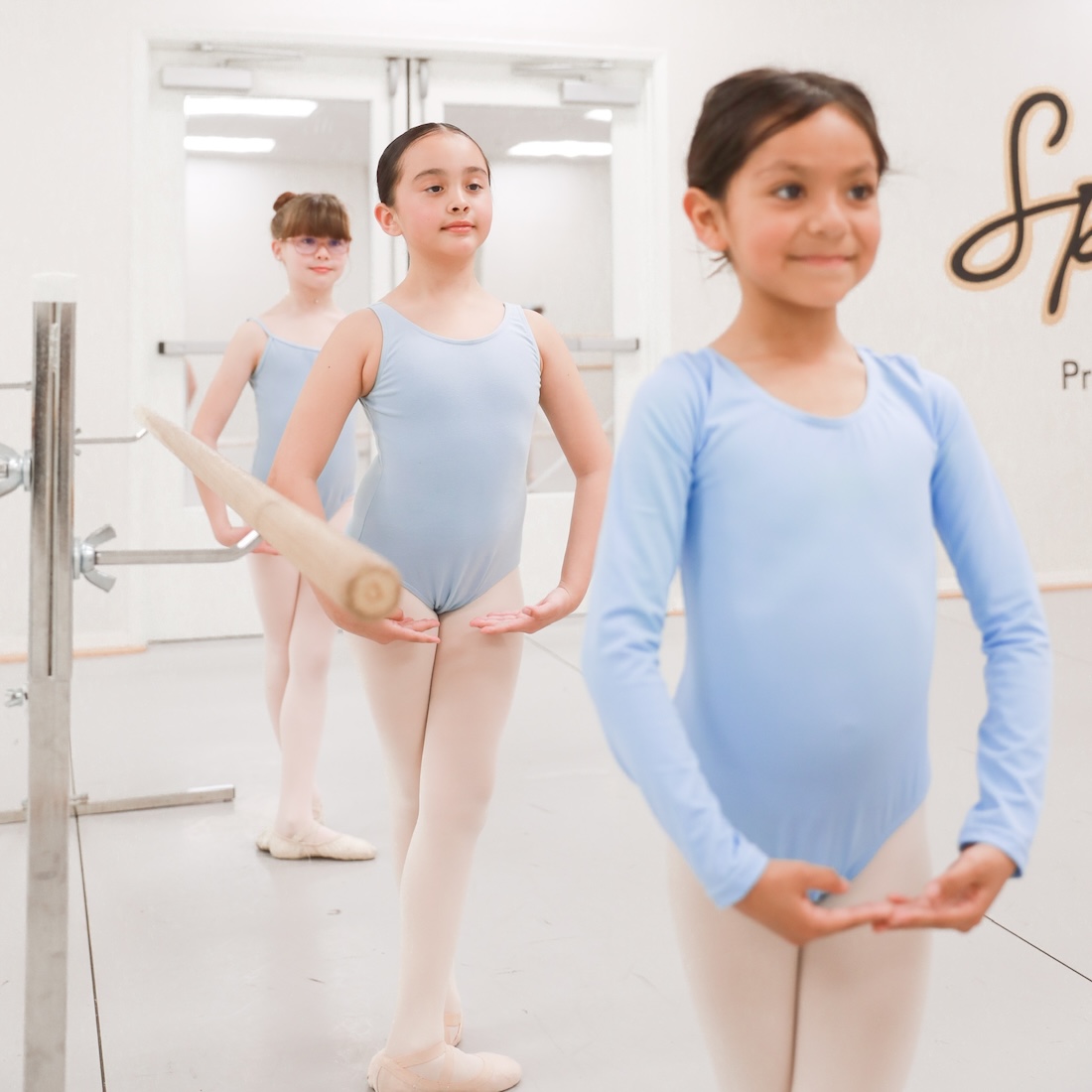
Dance is so much more than a workout. When taught thoughtfully and with intention, dance is a powerful way for kids to develop essential life skills that will serve them as they grow into adults.
Here’s what to know about how dance can help them thrive beyond the studio’s walls.
Life Skills Learned in Dance Classes
Dance isn’t just about movement. It’s about learning valuable lessons that carry into everyday life.
The structure of dance classes, the challenges involved, and the social aspect of classes all contribute to teaching essential life skills.
Dance teaches kids how to set goals, manage time, and work towards improvement. It also helps them develop resilience as they learn to cope with mistakes and setbacks and perform in front of an audience.
What Does Dance Teach a Child?
Goal Setting
Dance classes often involve working towards specific goals, like mastering a routine or preparing for a performance. This helps kids grasp how fulfilling it can be to set goals, plan, and work consistently to achieve them.
Perseverance
Dance is not easy, and kids quickly learn that improvement requires persistence. Whether perfecting a problematic move or working through stage fright, dance teaches kids to keep trying, even when faced with challenges.
Time Management
Balancing dance classes, school, and other activities requires good time management. Kids learn to prioritize tackling important tasks and manage their schedules effectively.
Self-Expression
Dance is a powerful form of self-expression. It allows children to convey their emotions and thoughts through movement, helping them develop a strong sense of identity and individuality.
Adaptability
In dance, things don’t always go as planned. Kids learn to adapt to changes, whether it’s a new dance style, a different dance partner, or an unexpected challenge during a performance.
Critical Thinking
Dance encourages kids to think critically about their movements, how they connect with music, and how to improve their performance. This can help with problem-solving and decision-making in other aspects of life.
Respect for Others
Dance teaches respect for teachers, peers, and the art form itself. Kids learn to listen to instructions, accept feedback gracefully, and appreciate the efforts of others.
Self-Confidence
Performing in front of an audience builds self-confidence, whether in a small class or on a stage. Kids learn to trust their own capabilities and take pride in their achievements.
10 Benefits of Dance Classes for Children
Physical Fitness
Dance is a full-body workout that improves heart health, flexibility, strength, and endurance. It helps children develop a strong and healthy body while promoting good posture and balance.
Coordination and Motor Skills
Dance requires precise movements and timing, which help kids improve their coordination and fine motor skills. These abilities are crucial not just in dance but in everyday activities.
Cognitive Development
Learning and remembering choreography hones memory, attention, and problem-solving skills. Dance challenges the brain and helps improve mental agility.
Creativity
Dance encourages children to express themselves creatively. Whether through improvisation or choreographed routines, dance allows kids to explore their imaginative side and develop their unique style.
Emotional Expression
Dance provides a safe outlet for children to express their emotions and release energy. Through movement, kids can communicate feelings they may not be able to put into words, which ultimately helps them manage stress and build emotional resilience.
Social Skills
Dance classes often involve group activities that require group coordination, communication, and teamwork. This can help children foster friendships and learn to work well with others.
Self-Discipline
Dance requires practice, dedication, and focus. Kids learn the value of hard work and perseverance as they strive to master new moves and routines, instilling a strong sense of self-discipline.
Confidence
Children will gain confidence in their abilities as they improve their dance skills and perform in front of audiences. Positive feedback from teachers and peers also boosts their self-esteem.
Expanded Horizons
Dance exposes kids to different cultures and traditions through various styles like ballet, hip-hop, jazz, and folk dance. The exposure fosters an appreciation for other cultures and encourages openness.
Fun!
Above all, dance is just plain fun. It provides a sense of joy and accomplishment that kids will look forward to week after week.
What Is the Most Important Skill in Dancing?
While many skills are essential in dance, discipline is among the most crucial. Discipline means the commitment to practice regularly, the focus to pay attention to detail, and the perseverance to keep improving.
Luckily, discipline also serves kids well in school and will serve them even further in their adult lives as they navigate careers, family, and personal goals. Life skills learned in dance classes will stay with kids for life – and it all starts in the studio.
Kids’ Dance Classes in Clovis, California
At America’s Kids In Motion, we offer dance lessons in Clovis, California, for kids of all ages and interests.
Our lessons span various dance styles, skill levels, and scheduling options to meet your family’s needs. Contact America’s Kids In Motion today to learn more.




